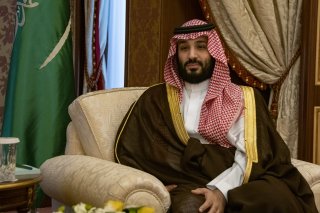A New Era of Saudi Diplomacy Has Arrived
As part of the crown prince’s modernization drive, there has been a push towards forging a more autonomous foreign policy, with national interests taking precedence over longstanding ties established in a different time.
Saudi Diplomacy’s Mixed Results
Despite the vitality, imagination, and competence evident in Saudi Arabia’s diplomatic strategy, the results of its efforts have been mixed, and significant hurdles stand in the way of achieving its aims.
Intra-GCC reconciliation has given way to heightened rivalry. Saudi Arabia and the UAE have continued to spar over influence over global oil markets and policies regarding Yemen, Sudan, and the Red Sea basin. They are also competing to be the top commercial and tourist hubs and to attract foreign investment. Yet, despite the current fragility in Saudi-Emirati relations, observers often exaggerate the disagreements between Riyadh and Abu Dhabi, much as they might have initially overstated the depth of their alliance.
Regarding the Saudi-Iranian détente, Riyadh and Tehran have managed to stabilize their rivalry and prevent militarization. The diplomatic thaw has allowed them to focus on their pressing domestic agendas. However, Saudi Arabia and Iran have yet to sign, let alone implement, any substantive agreement, and the broader security risks associated with Iran’s network of proxies have been somewhat contained but not eliminated.
Saudi Arabia’s diplomatic outreach to Africa, investment pledges, and advocacy for the suspension of debt service obligations for Africa have likely generated goodwill and may enhance economic ties and practical cooperation. However, other aspects of Riyadh’s conduct, such as remaining engaged with post-coup leaders of African states suspended by the African Union (AU)—Gabon, Niger, and Sudan—could strain Saudi-AU relations.
A recent Wall Street Journal editorial claimed that BRICS “has evolved into a diplomatic bloc bent on countering Western influence.” Crown Prince Mohammed has sought to dispel this impression, stating that “BRICS is not a group against America or the West.” Not all the members of the recently expanded grouping necessarily share that view. The evidence suggests that Riyadh feels less bound to the United States and the West. Nevertheless, under MBS, the kingdom continues to seek support and cooperation from Washington and its European partners—a goal that could become more challenging if Saudi Arabia joins BRICS and MBS’s view proves incorrect.
It can be argued that Saudi Arabia’s mediation efforts have failed. However, such efforts are highly complex, much like the conflicts they try to resolve. Regarding Riyadh’s high-profile diplomatic intervention in the Russia-Ukraine war, it is worth noting that despite various plans and mediation proposals from China, Brazil, and other nations, none have gained traction. Aspects of Riyadh’s diplomatic involvement may have displeased Moscow. Yet, it did not disrupt the bilateral relationship, allowing Saudi Arabia to garner diplomatic points with Kyiv and European supporters.
The Israel-Hamas war has disrupted the region's stability, presenting challenges for Saudi diplomacy and complicating the realization of its goals. Riyadh has reaffirmed the centrality of the Palestinian issue and a common Arab approach supporting a “comprehensive and just settlement.” However, Qatar and Egypt—not Saudi Arabia—have led negotiations with the United States.
Looking ahead, should Riyadh be unable or disinclined to deploy troops to postwar Gaza or extensively finance reconstruction, its diplomatic efforts could be seen as empty. Meanwhile, the viability of the IMEC now rests on the revival of normalization talks between Saudi Arabia and Israel, whose prospects, at present, have dimmed. The Saudi foreign ministry recently affirmed its position that there will be no diplomatic relations with Israel “… unless an independent Palestinian state is recognized on the 1967 border, with east Jerusalem as its capital.”
The Imperative of Regional Stability
As part of the crown prince’s modernization drive, there has been a push towards forging a more autonomous foreign policy, with national interests taking precedence over longstanding ties established in a different era. Accordingly, in recent years, Saudi Arabia has taken a more proactive approach to diplomacy, concentrating its efforts on easing tensions with regional and international counterparts, enhancing the kingdom's standing as a prominent middle power, and nurturing an economy capable of flourishing amid the global energy transition.
Saudi Arabia’s diplomatic efforts, underpinned by its immense financial clout, have seemingly aided in restoring its international reputation, marred by years of controversial interventions. Nevertheless, the kingdom faces heightening tensions between its traditional security ally, the United States, and its critical market, China, as well as the fallout from the collapse in Russia-West relations over Ukraine and the Israel-Hamas war. The Sudan conflict and Houthi attacks on international shipping are particularly problematic for Saudi Arabia, given Crown Prince Mohammed’s aspirations to reduce reliance on fossil fuels by diversifying the economy, a plan that heavily relies on developing the Red Sea coast.
The resurgence of conflict, both within the Middle East and beyond, has, to some extent, exposed the limitations of Saudi diplomacy yet has also underscored the enduring influence of geopolitics. It may also serve as a reminder that attaining Saudi Arabia’s lofty economic goals hinges on stability in the Middle East. This, in turn, requires that Riyadh carefully balance security-seeking and status-seeking behavior while maintaining a robust partnership with the United States. Likewise, it demands that the United States encourage and support Saudi efforts to pursue constructive diplomacy and ensure effective deterrence.
Dr. John Calabrese teaches international relations at American University in Washington, DC. He is the book review editor of The Middle East Journal and previously served as director of MEI's Middle East-Asia Project (MAP), and as general series editor of MEI Viewpoints. He is the author of China's Changing Relations with the Middle East and Revolutionary Horizons: Iran's Regional Foreign Policy. Follow him on X: @Dr_J_Calabrese.
Image: U.S. State Department

